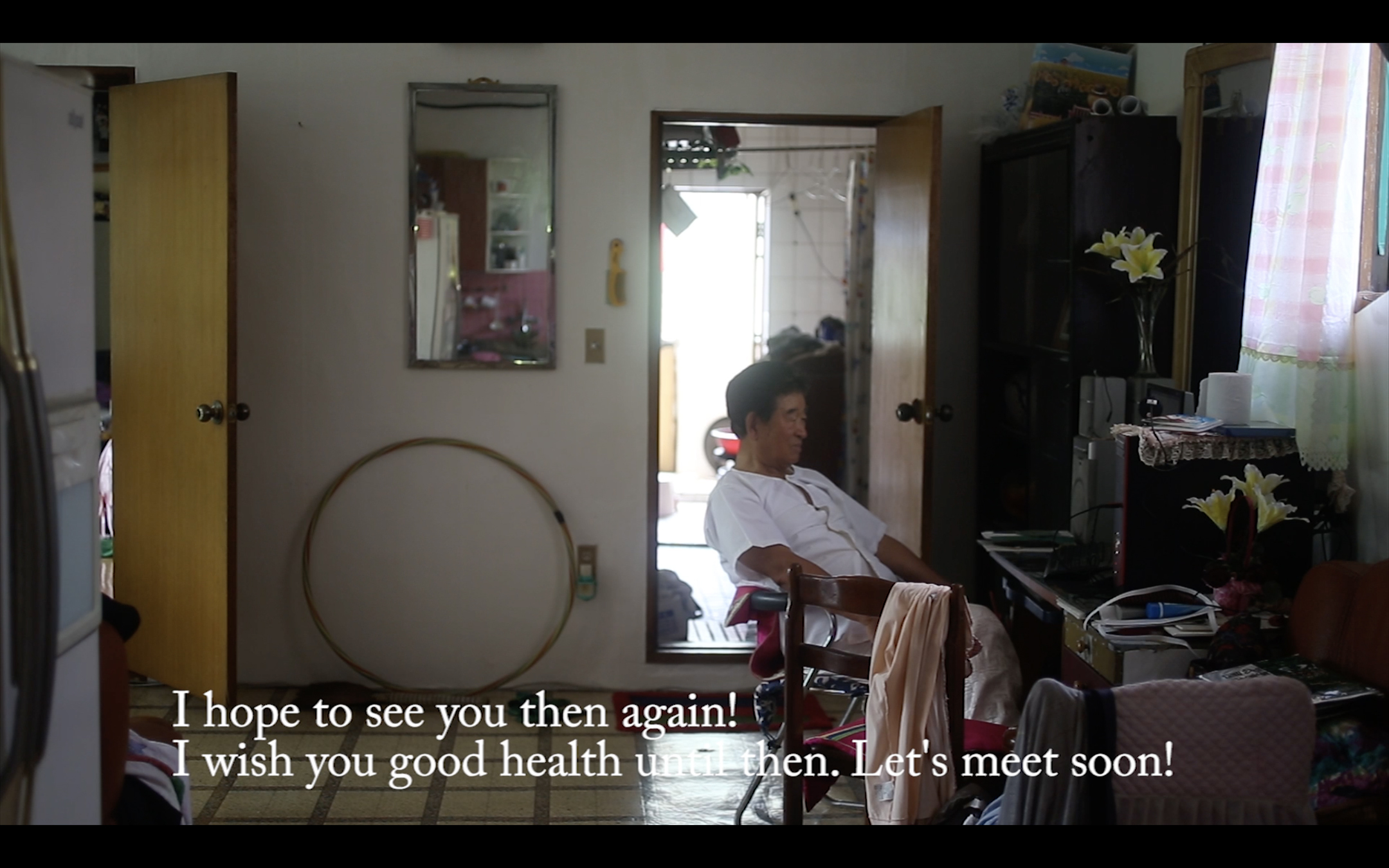
14 Dec March 11 2014
Regular meeting at Hexagram
Jin leads the group to the screening room to show her Afterlife video Days of Summer.The video is a long take of her grandfather in his living room, sitting in front of the computer watching video footage from the past. The sound of the particular clip that he is watching on his computer screen features his own voice, cheerful, full of energy and excitement, talking to his friends who had participated in the gateball tournament that his team competed in. Jin’s video only shows a scene of him watching the computer screen from the side, so the angle does not capture what he is watching. The clip itself remains a mystery, while the sound from the playback overpowers the ambience of the room. The contrast between the liveliness that is being projected from sound of the clip and the calm, introspective moment of the old man creates a jarring emotional space. The old man is completely engaged with the screen that he is watching, nodding occasionally to the comments that his friends make and listening to his own voice narrating the event. The celebratory tone of his voice seems to be pleasing him, taking him to that moment of personal glory. After a brief pause, the video cuts to another scene, the scene of the computer screen, now showing a digitally transferred Hi8 video recording of a family gathering. It is another long take that is recording what the computer screen is playing. The computer in both videos is a memory machine, a kind of portal, a window into the past. Jin is interested in the overlapping of the multiple temporalities, as well as the perceived time of the video and the individual’s subjective experience of the present.
A short discussion follows after the screening of both clips. There is a question about whether or not the two should be screened back to back like Jin had presented, or they can be separated and exist as independent pieces.


